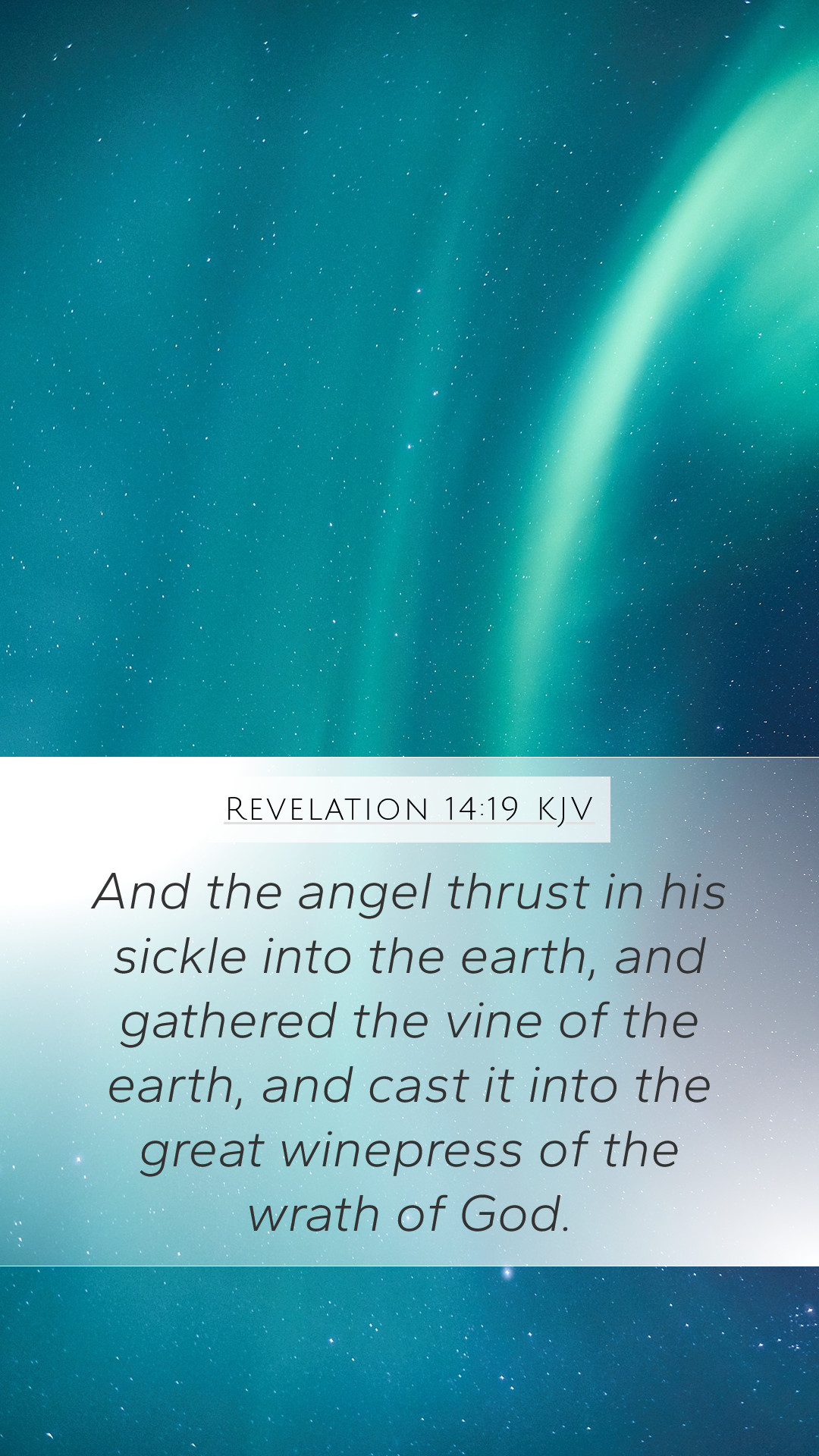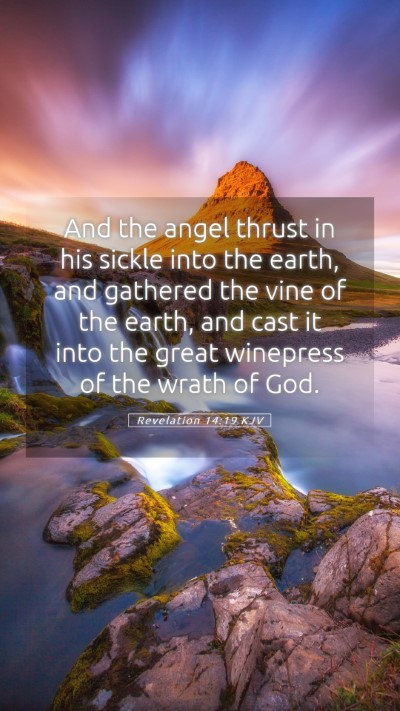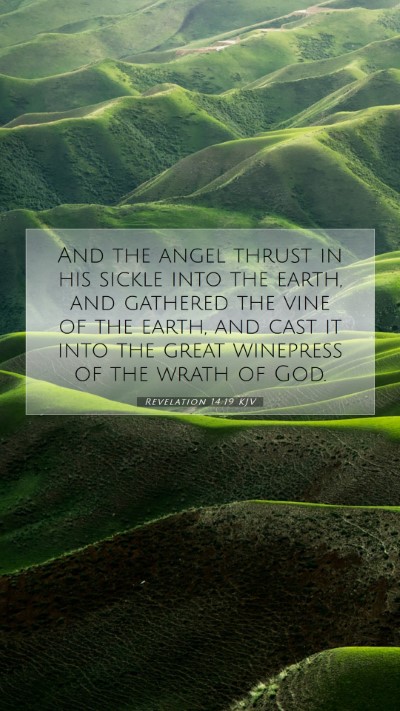Understanding Revelation 14:19
The verse Revelation 14:19 states:
"And the angel thrust in his sickle into the earth, and gathered the vine of the earth, and cast it into the great winepress of the wrath of God."
This passage is rich with meaning and illustrates significant theological concepts regarding judgment and divine wrath.
Overview of Revelation 14:19
Revelation 14:19 signifies a moment of divine judgment where the angel's action of harvesting the earth symbolizes the gathering of the wicked for judgment. The imagery of the winepress represents the severity of God's wrath against sin.
Commentary Insights
Matthew Henry's Commentary
Matthew Henry emphasizes the purpose of this harvest, indicating that it is a time of separation between good and evil. The sickle being thrust into the earth highlights the imminent execution of God's justice. Henry notes that this moment should invoke a sense of urgency in repentance and readiness for Christ's return.
Albert Barnes' Commentary
Albert Barnes provides additional context regarding the “vine of the earth.” He interprets this as representing humanity's sinful nature, cultivated away from God's righteousness. Barnes further explains that the winepress symbolizes the intense suffering that awaits those who reject God's grace, illustrating the consequences of sin.
Adam Clarke's Commentary
Adam Clarke offers insights into the apocalyptic imagery. He elaborates on the significance of the winepress as a metaphor for divine wrath where the grapes symbolize the wicked being pressed down. Clarke cautions readers about the seriousness of irreverence towards God, encouraging a deep reflection on one's spiritual state.
Theological Implications
This verse prompts believers to consider the following theological implications:
- The Reality of Divine Judgment: The image of the winepress serves as a stark reminder of the reality of God's judgment and the fate of unrepentant sinners.
- The Necessity of Righteousness: It emphasizes the call for individuals to pursue righteousness and live according to God's standards to avoid divine wrath.
- The Sovereignty of God: The control that God has over the final judgment is evident, showcasing His supreme authority over all creation.
Application for Believers
Understanding Revelation 14:19 encourages believers to:
- Reflect on Personal Conduct: Assess one’s life in light of God's sovereignty and righteousness, embracing a lifestyle of repentance.
- Engage in Evangelism: Encourage others to turn to God, emphasizing the urgency of accepting His grace before the day of judgment.
- Study Scripture with Intent: Utilize this verse and others within Revelation to enhance understanding of biblical prophecy and its implications for modern life.
Related Cross References
This verse connects with several other passages that elaborate on similar themes:
- Matthew 13:30: Jesus explains the harvest at the end of the age, illustrating the separation of the righteous from the unrighteous.
- Isaiah 63:3: The imagery of God's wrath as a winepress of blood underlines the serious consequences of rebellion against God.
- Joel 3:13: The gathering of nations for judgment is depicted, linking closely with the themes present in Revelation.
Conclusion
Revelation 14:19 serves as a pivotal moment in the narrative of divine judgment and underscores the importance of understanding Scripture. By exploring the meanings found within this verse, believers can engage with foundational concepts of faith, righteousness, and divine justice. For those seeking deeper Bible verse meanings and interpretations, this passage offers rich insights applicable to daily life and spiritual growth.
Further Studies and Resources
To deepen the understanding of Scripture and explore more about Revelation and its context, consider the following Bible study resources:
- Bible Study Groups: Join local or online groups to discuss interpretations and applications of scripture.
- Bible Study Tools: Utilize commentary tools and various editions of the Bible for comparative study.
- Bible Study Guides: Seek guides that specifically cover the Book of Revelation for thematic and historic backgrounds.
- Bible Study Lessons: Engage in structured lessons that take you through the key teachings of Revelation.


